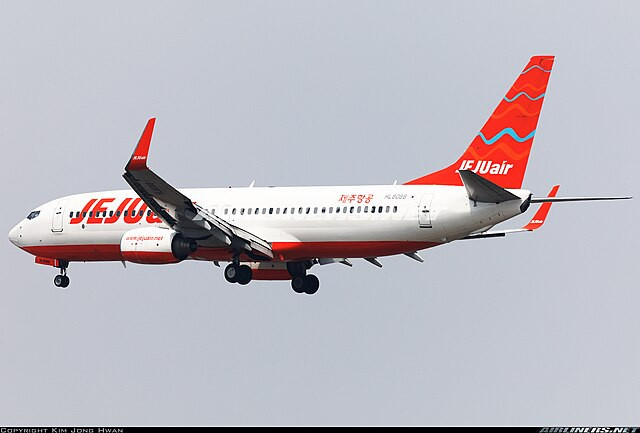The aviation world is facing heightened unease in 2024 after multiple Boeing incidents culminated in a devastating crash in South Korea. That accident, involving a Jeju Air Boeing 737-800, resulted in 179 fatalities among the 181 passengers and crew, marking the deadliest aviation disaster of the year. Prior to this tragic event, Boeing had already been the subject of serious conversations concerning safety and performance-a trend that appears to have intensified following the South Korean crash.
According to preliminary information provided by authorities, the ill-fated plane landed without its front landing gear deployed, overshot the runway, slammed into a concrete fence and burst into a fireball. This stunning chain of events took place during a second landing attempt at Muan International Airport. While a formal investigation is underway, the prospect of a landing gear failure, coupled with a bird strike warning, has prompted renewed focus on Boeing's recent track record.
How Many Boeing Plane Crashes Have There Been in 2024?
Before the Jeju Air tragedy, Boeing faced a string of incidents-though none nearly as deadly. A January 5 incident involving an Alaska Airlines Boeing 737 MAX 9 featured a plugged exit door separating from the airframe shortly after departure.
On March 12, a Southwest Airlines 737 MAX 8 experienced a "Dutch roll" oscillation, prompting inspections of the aircraft's rudder standby power control unit. Come October 15, a Ryanair 737-800 aborted takeoff in Italy after fire was spotted beneath its wing, leading to an evacuation but no injuries.
Then, on November 20, a Total Cargo 737 freighter landed in Brazil with a blaze in its cargo hold, causing damage to the fuselage but no casualties. While these earlier episodes involved varying degrees of damage or disruption, they did not result in any fatalities.
In total, these documented 2024 incidents involved Boeing aircraft of different variants-MAX 9, MAX 8, a 737-800, and a 737 cargo plane. However, the catastrophic crash in South Korea stands alone as a singularly lethal event, overshadowing the others in both scope and severity.
Analysts say that a year with multiple Boeing-related incidents, even if most did not produce casualties, has reinforced a sense of alarm when a crash with large-scale fatalities does occur. Market watchers have taken note of Boeing's stock dropping around 5 percent after the South Korean accident, showcasing how directly these events translate into global investor anxiety.
What We Know About the Boeing 737-800 Model
The Boeing 737-800 belongs to the "next generation" series of the renowned 737 lineup, first launched in 1993. "The 737-800 is one of the 'next generation' models of Boeing's bestselling 737 series," according to industry data. First taking flight in 1997, this variant has remained a workhorse for many airlines, thanks to its range, capacity, and generally strong performance record. Many of the 737-800 jets seat up to 189 passengers in a standard configuration, and the type has proved popular worldwide.
While the 737-800 predates the more recent 737 MAX series, it still forms a major part of carriers' fleets globally. Cirium, an aviation analytics firm, estimates that about 15 percent of the entire global passenger aircraft fleet (roughly 4,400 planes) currently comprises Boeing 737-800s. Industry insiders have pointed out that these planes are widely favored for short- to medium-haul routes thanks to their fuel efficiency and relative reliability.
Yet, the model's longstanding service record has done little to quell immediate fears after the catastrophic events in Muan, South Korea. Many are drawing parallels to previous Boeing troubles, although experts caution that the 737-800 has not been associated with the same design flaws that plagued the 737 MAX in two notorious crashes occurring in 2018 and 2019.
In the aftermath of this latest disaster, Jeju Air's chief executive, Kim E-bae, expressed regret and a sense of obligation to the victims' families. "Regardless of the cause of the accident, I feel responsible as the CEO," he stated. Kim acknowledged that the company has already seen tens of thousands of cancellations, revealing how such accidents ripple beyond mere questions of mechanical integrity to also impact passenger confidence.
Meanwhile, Boeing's official response has been one of measured cooperation with investigators, with the company noting in a statement that it remains "legally obliged to refer all queries about the accident to South Korea's Aviation and Railway Accident Investigation Board (ARAIB)." Safety inspectors from the U.S. National Transportation Safety Board, alongside Boeing representatives, are expected to arrive in South Korea to assist with the investigation.




